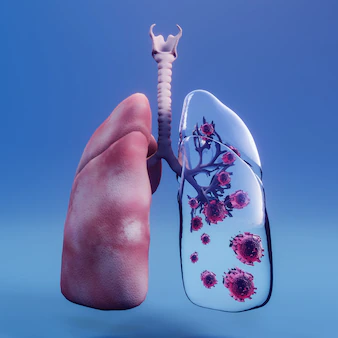Treatment of Lung Cancer

Lung cancer is a serious and often deadly disease. However, there are several treatment options available that can improve survival rates and quality of life for patients. Here are some important things to know about the treatment of lung cancer:
- Types of treatment: There are several types of treatment for lung cancer, including surgery, chemotherapy, radiation therapy, targeted therapy, and immunotherapy. The type of treatment recommended will depend on the stage and type of lung cancer, as well as the patient’s overall health.
- Surgery: Surgery may be used to remove tumors in the lung. This is most effective for early-stage lung cancer when the tumor is still localized to the lung.
- Chemotherapy: Chemotherapy involves the use of drugs to kill cancer cells. It is often used in combination with other treatments, such as surgery or radiation therapy.
- Radiation therapy: Radiation therapy uses high-energy radiation to kill cancer cells. It may be used alone or in combination with other treatments.
- Targeted therapy: Targeted therapy involves the use of drugs that target specific genetic mutations in cancer cells. This type of therapy is often used for advanced lung cancer.
- Immunotherapy: Immunotherapy works by helping the body’s immune system to recognize and attack cancer cells. It may be used alone or in combination with other treatments.
- Palliative care: Palliative care is an important part of the treatment of lung cancer. It focuses on improving the patient’s quality of life and relieving symptoms such as pain, shortness of breath, and fatigue.
In conclusion, the treatment of lung cancer depends on the type and stage of the cancer, as well as the patient’s overall health. There are several types of treatment available, including surgery, chemotherapy, radiation therapy, targeted therapy, and immunotherapy. Palliative care is also an important part of the treatment plan to improve quality of life for patients. It is important for patients to work closely with their healthcare team to determine the best treatment plan for their individual needs.
